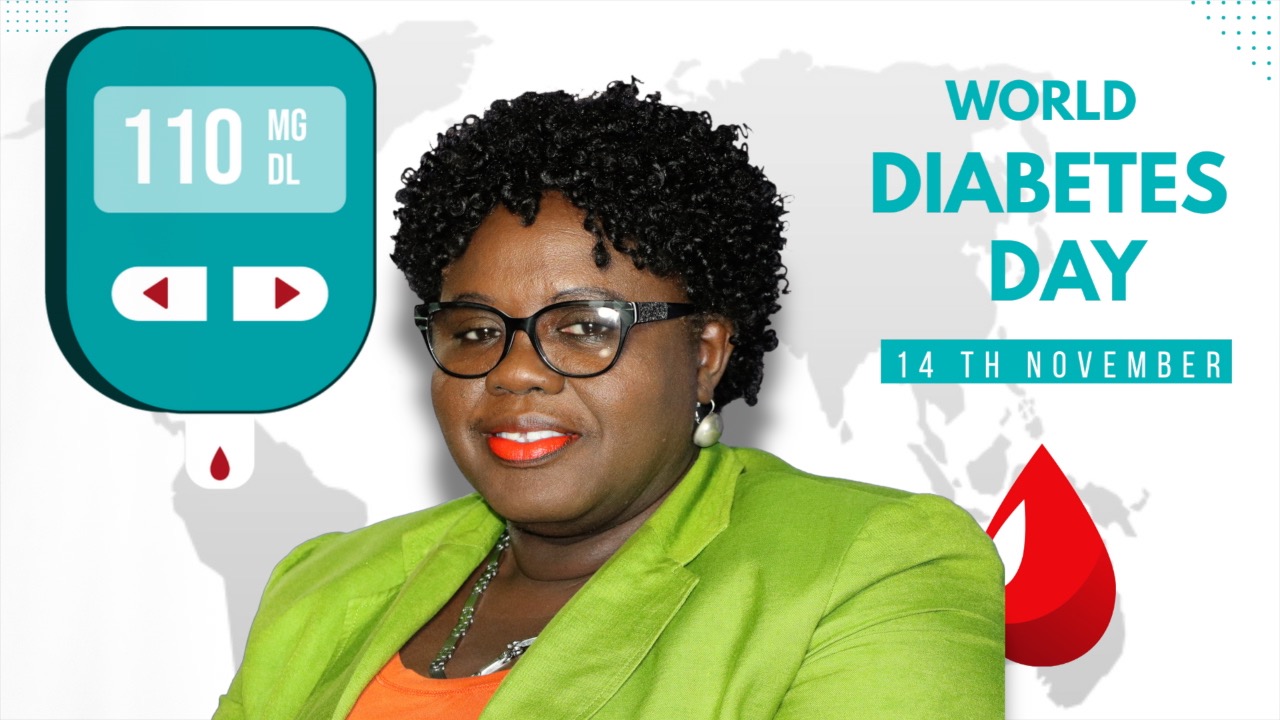NIA Junior Minister of Health Hon. Hazel Brandy-Williams delivers address for World Diabetes Day 2020

NIA CHARLESTOWN NEVIS (November 13, 2020) — The following is an address by Hon. Hazel Brandy Williams, Junior Minister of Health in the Nevis Island Administration (NIA) on the occasion of World Diabetes Day 2020 on November 14.
World Diabetes Day is observed every year on the 14th of November, to raise awareness about diabetes. The theme this year is ‘The Nurse and Diabetes’, which aims to emphasize the crucial role that nurses play in supporting persons living with this chronic disease.
Nurses are at the forefront of health care. They play a pivotal role in monitoring our population’s health. Their performance can significantly influence health related outcomes.
Chronic diseases such as diabetes require long-term care and management to attain proper control and to prevent complications such as amputations, eye disease and kidney failure. Control and management programmes expand beyond the visit to a health facility and therefore, nurses help individuals and their families to navigate through the battery of test and medical care required.
Some of the functions that nurses play in the prevention and control of diabetes include:
- recognition of risk factors
- screening and early identification of new cases for timely interventions and treatment
- assistance with education and self-management
- Provision of psychological support.
It is therefore important that nurses are equipped with up-to-date information and the necessary tools to work effectively and efficiently.
As a government, we have committed to invest in the local nursing body to make certain that they acquire the necessary skills through ongoing training and capacity building. This we hope, will improve their ability to provide support and to guide persons living with diabetes and those at risk of developing the disease.
The World Health Organization [WHO] has reported that nurses account for 59 percent of health professionals. Worldwide, there are significant shortages of nurses all over the world. However, the WHO indicates that if we are to overcome this shortage, the number of trained and employed nurses would need to grow by 8 percent per annum. Furthermore, as the number of people living with diabetes continue to rise, the demand for trained nurses will also continue to grow.
In Nevis the number of nurses has declined due in part to migration and retirement. Currently there are 35 trained nurses employed in institutional services and 10 nurses in community services. This cadre is supported by a team of enrolled nursing assistants, community health workers and other supporting staff in managing the 470 registered diabetics on record.
Despite our shortages, they work continuously in collaboration with other health care providers in both the public and private sector to provide screening, educational and outreach activities, foot care, self-management and other essential services for prevention and control.
I must therefore thank the nurses both current and retired here in Nevis, for their continued unwavering and selfless dedication to the service and for helping to care for our fellow citizens living with diabetes and other chronic diseases. I salute you for a job well done and as a government, we will continue to do all we can to support your efforts!
As we observe this World Diabetes Day, let us remember our nurses and their support staff. Honour their efforts by following their expert guidance and advice. Nurses make a difference in the prevention and control of diabetes. Continue to stay informed about diabetes and its complications and let us fight diabetes and its related complications together.
